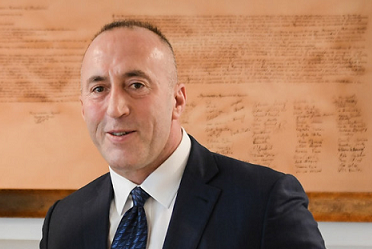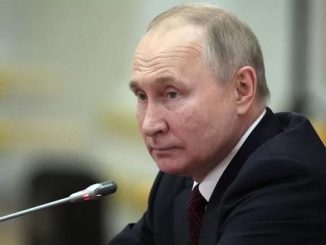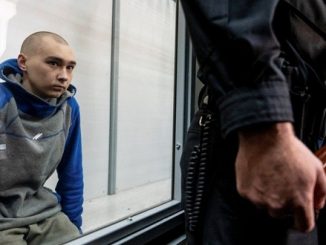
Kosovo’s prime minister has resigned after a war crimes court in The Hague summoned him for questioning as a suspect.
Ramush Haradinaj, 51, served as a rebel commander in the 1998-1999 Kosovo conflict, which eventually led to Kosovo declaring independence.
He said he stepped down so he could attend court as an ordinary citizen.
Mr Haradinaj, who denies war crimes charges, has been tried and acquitted twice at the UN tribunal.
“I received a call by the special court as a suspect and was offered to go as the prime minister or as an ordinary citizen of Kosovo,” he told reporters on Friday. “I chose the latter.”
“Responsibility now goes to the president to start consultations to set the date of the [general] election,” he added.
Mr Haradinaj said he would be questioned next week.
The special EU-backed court was set up in 2015 to try war crimes allegedly committed by the Kosovo Liberation Army (KLA) against ethnic minorities and political opponents.
Mr Haradinaj served as a commander of the KLA during the war with Serbia. Serbia has alleged that he oversaw a campaign of torture and murder against ethnic Serbs during the conflict.
He has been acquitted twice on war crimes charges at The Hague – first in 2008 and then in 2012. But Serbia said it had further evidence involving civilian murders.
Mr Haradinaj has consistently denied the allegations, and stepped down as prime minister after just 100 days in 2005 to face the charges.
The judge at his most recent trial in 2012 said there was no evidence to support the claims.
Kosovo was formerly a province of Serbia. Years of tensions turned into open conflict in 1998, when the Serbian government launched a crackdown.
It eventually withdrew its troops from Kosovo after a two-month campaign of air strikes by Nato in 1999. An estimated 10,000 people died in the conflict and about 1,700 remain missing.
Kosovo declared independence from Serbia in 2008, although Serbia has never recognised this.
Mr Haradinaj was held for over a week in France in 2017 on a Serbian arrest warrant before being released.
Source: bbc.co.uk






Be the first to comment